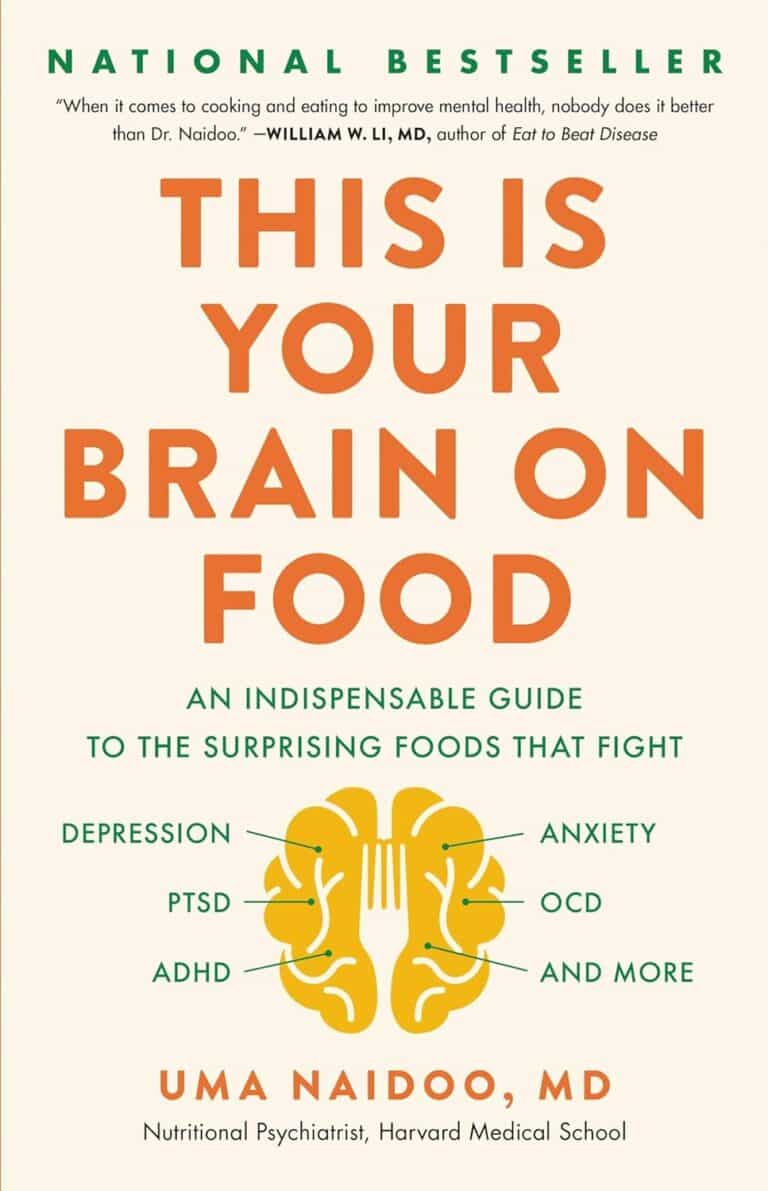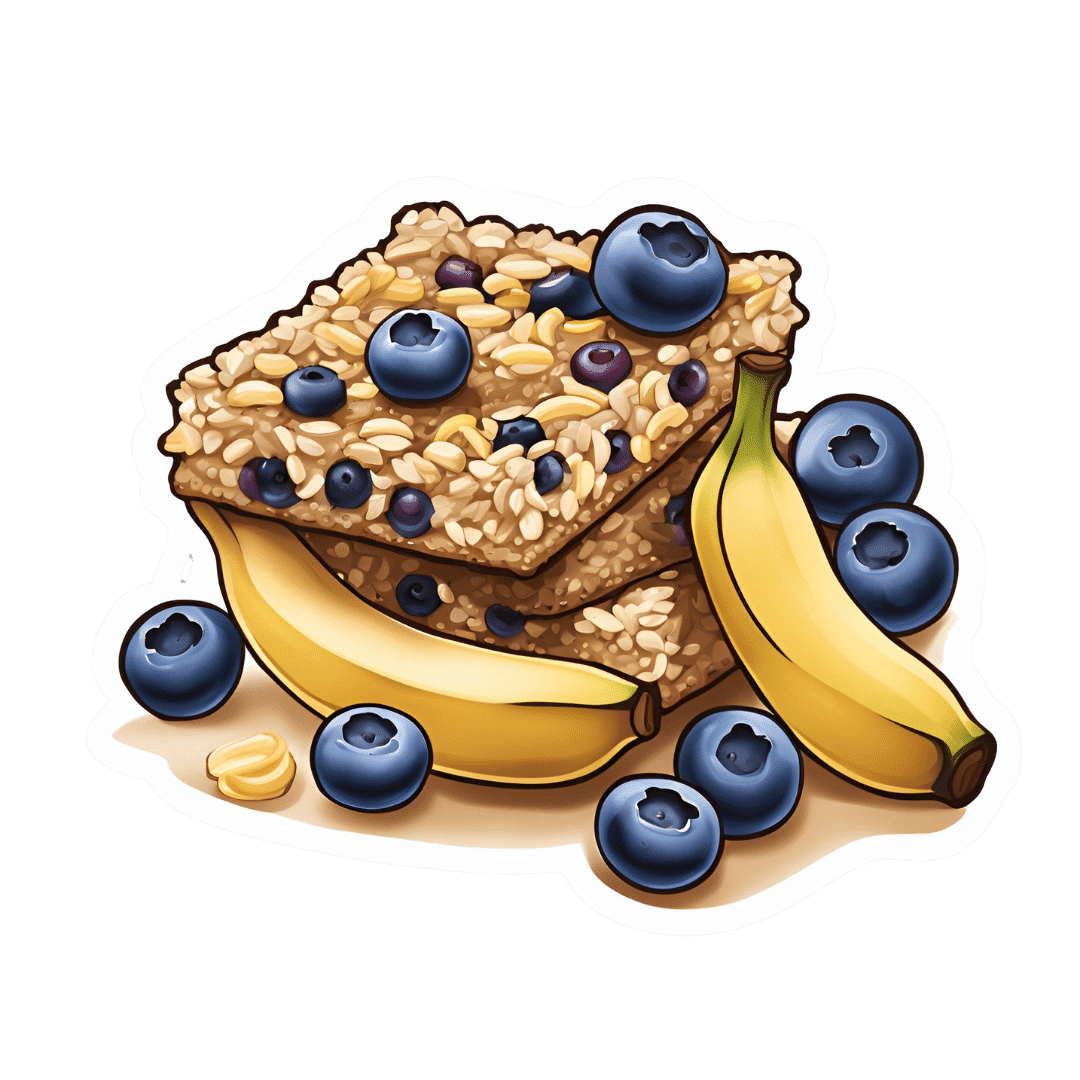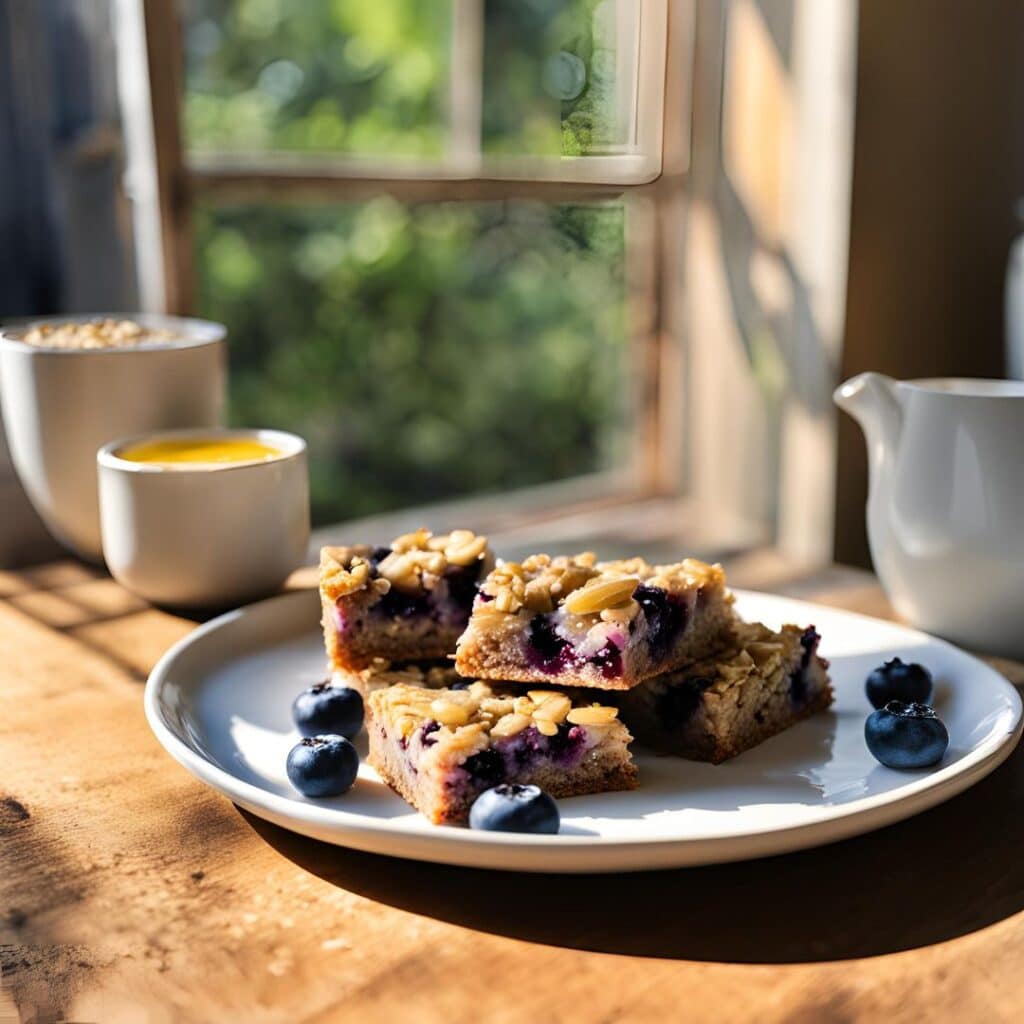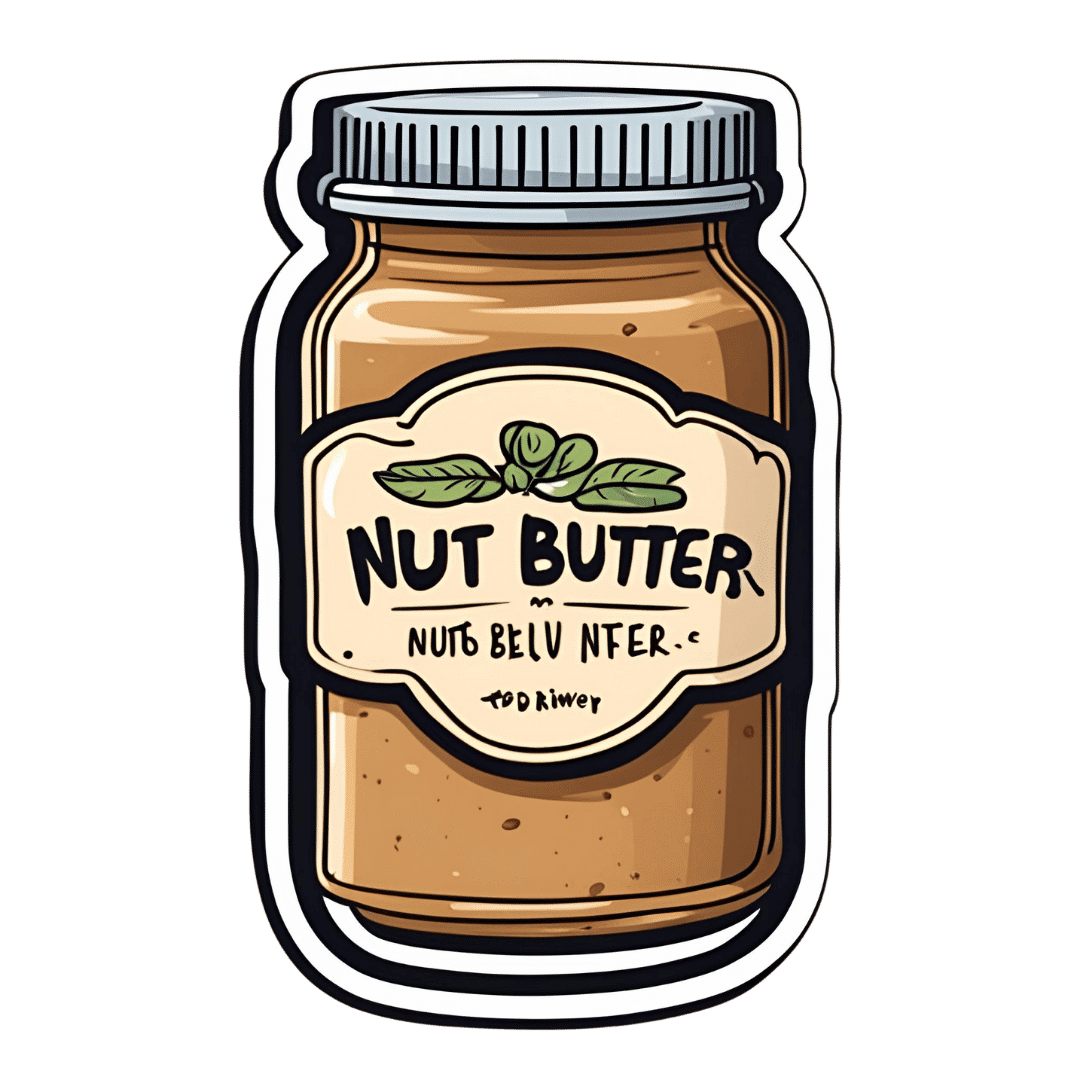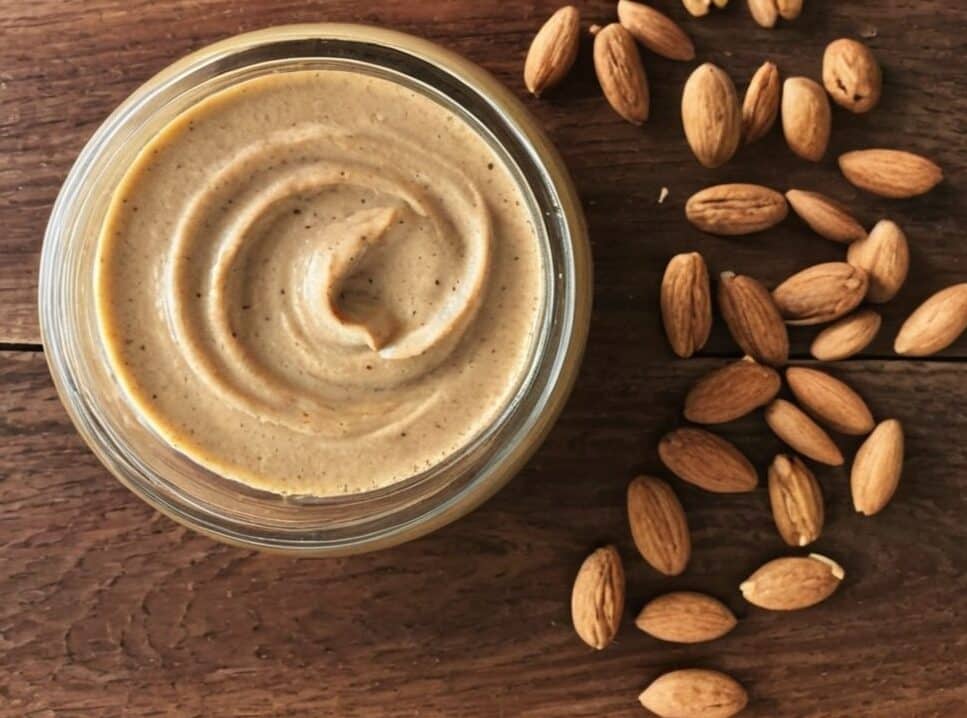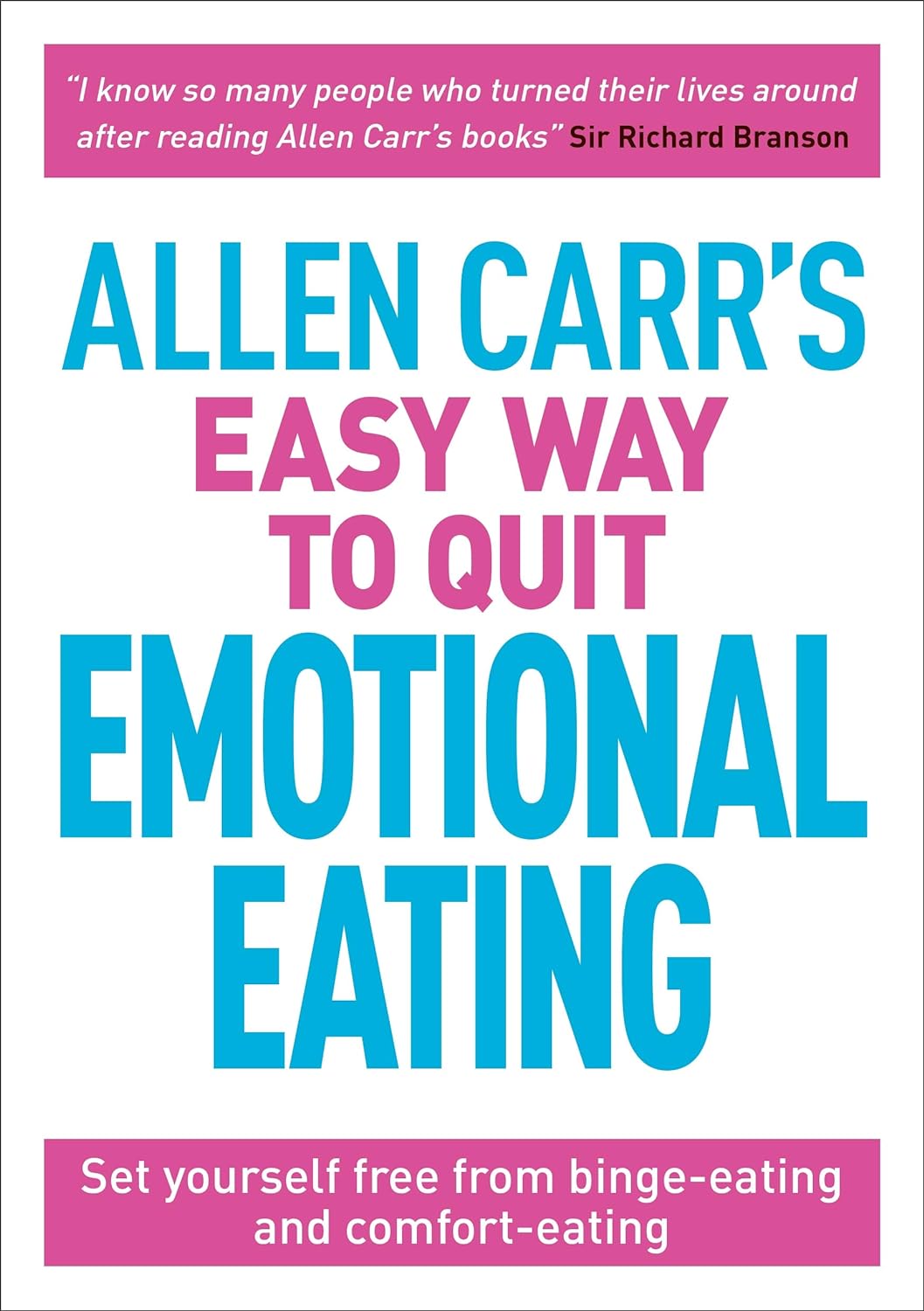
Allen Carr’s Easy Way to Quit Emotional Eating – by Allen Carr
10almonds is reader-supported. We may, at no cost to you, receive a portion of sales if you purchase a product through a link in this article.
We’ve reviewed books before on quitting drinking; is this book about emotional eating so different?
There are overlaps, but important points of contrast, too. After all, alcohol and junk food are both often unhealthy coping mechanisms for other things, though:
- Alcohol has in principle the stronger grip (making it harder to give up)
- Junk food is so much easier to justify (making it harder to give up)
Author Allen Carr is of course most well-known for his debut book about quitting smoking, and he brings a lot of that expertise to bear on the slightly different beast that is emotional eating.
Focused on reframing quitting as being less about self-denial and more about self-liberation, he helps readers to understand that giving up a substance (in this case, junk food) does not mean giving up happiness—rather, it means finding happiness beyond it.
If this book has a downside, it’s that some parts can be a little repetitive, and it can sometimes seem like one of those “this book could have been an article” situations.
On the other hand, many people benefit from repeated messages to truly inculcate an idea, so this could be a positive for a lot of readers.
Bottom line: if you’ve tried to eat more healthily but find that you keep reaching for an unhealthy comfort food, then this book may make a difference that other methods didn’t.
Click here to check out The Easy Way To Quit Emotional Eating, and find your own freedom!
Don’t Forget…
Did you arrive here from our newsletter? Don’t forget to return to the email to continue learning!
Recommended
Learn to Age Gracefully
Join the 98k+ American women taking control of their health & aging with our 100% free (and fun!) daily emails:
-
Blueberry & Banana Collagen Baked Oats
10almonds is reader-supported. We may, at no cost to you, receive a portion of sales if you purchase a product through a link in this article.
Good news for vegans/vegetarians! While we include an optional tablespoon of collagen powder in this recipe, the whole recipe is already geared around collagen synthesis, so it’s very collagen-boosting even with just the plants, providing collagen’s building blocks of protein, zinc, and vitamins C and D (your miraculous body will use these to assemble the collagen inside you).
You will need
- 2 cups oats, whence the protein and zinc
- 1 cup milk (your preference what kind; we recommend almond for flavor; whether you choose plant or animal though, it should be fortified with vitamin D)
- 2 bananas, peeled and mashed
- 4 oz blueberries, whence the vitamin C (frozen is fine) (chopped dried apricots are also a fine substitute if that’s more convenient)
- 1 oz flaked almonds, whence the protein and zinc
- 1 tbsp pumpkin seeds, whence the protein and zinc
- 1 tbsp flax seeds, whence the protein and zinc
- Optional: 1 tbsp maple syrup
- Optional: 1 tbsp collagen powder, dissolved in 1 oz hot water
Method
(we suggest you read everything at least once before doing anything)
1) Preheat the oven to 350℉ / 180℃.
2) Mix the oats with 2 cups boiling water; allow to stand for 10–15 minutes, and then drain any excess water.
3) Mix the mashed bananas with the remaining ingredients except the milk and blueberries, stirring thoroughly.
4) Add the softened oats, and stir those in thoroughly too.
5) Add the milk and blueberries, in that order, stirring gently if using fresh blueberries, lest they get crushed.
6) Pour the mixture into an 8″ square cake tin that you have lined with baking paper, and smooth the top.
7) Bake for about 40 minutes or until firm and golden brown. Allow to cool; it will firm up more while it does.
8) Cut into squares or bars, and serve or store for later.
Enjoy!
Want to learn more?
For those interested in some of the science of what we have going on today:
We Are Such Stuff As Fish Are Made Of ← our main feature about collagen
Take care!
Share This Post
-
Healthiest-Three-Nut Butter
10almonds is reader-supported. We may, at no cost to you, receive a portion of sales if you purchase a product through a link in this article.
We’re often telling you to “diversify your nuts”, so here’s a great way to get in three at once with no added sugar, palm oil, or preservatives, and only the salt you choose to put in. We’ve picked three of the healthiest nuts around, but if you happen to be allergic, don’t worry, we’ve got you covered too.
You will need
- 1 cup almonds (if allergic, substitute a seed, e.g. chia, and make it ½ cup)
- 1 cup walnuts (if allergic, substitute a seed, e.g. pumpkin, and make it ½ cup)
- 1 cup pistachios (if allergic, substitute a seed, e.g. poppy, and make it ½ cup)
- 1 tbsp almond oil (if allergic, substitute extra virgin olive oil) (if you prefer sweet nut butter, substitute 1 tbsp maple syrup; the role here is to emulsify the nuts, and this will do the same job)
- Optional: ¼ tsp MSG or ½ tsp low-sodium salt
Method
(we suggest you read everything at least once before doing anything)
1a) If using nuts, heat your oven to 350℉ / 180℃. Place the nuts on a baking tray lined with baking paper, and bake/roast for about 10 minutes, but keep an eye on it to ensure the nuts don’t burn, and jiggle them if necessary to ensure they toast evenly. Once done, allow to cool.
1b) If using seeds, you can either omit that step, or do the same for 5 minutes if you want to, but really it’s not necessary.
2) Blend all ingredients (nuts/seeds, oil, MSG/salt) in a high-speed blender. Note: this will take about 10 minutes in total, and we recommend you do it in 30-second bursts so as to not overheat the motor. You also may need to periodically scrape the mixture down the side of the blender, to ensure a smooth consistency.
3) Transfer to a clean jar, and enjoy at your leisure:
Enjoy!
Want to learn more?
For those interested in some of the science of what we have going on today:
- Why You Should Diversify Your Nuts!
- Sesame Seeds vs Poppy Seeds – Which is Healthier?
- If You’re Not Taking Chia, You’re Missing Out
- Sea Salt vs MSG – Which is Healthier?
Take care!
Share This Post
-
How To Stop Binge-Eating: Flip This Switch!
10almonds is reader-supported. We may, at no cost to you, receive a portion of sales if you purchase a product through a link in this article.
“The Big Eating Therapist” Sarah Dosanjh has insights from both personal and professional experience:
No “Tough Love” Necessary
Eating certain foods is often socially shamed, and it’s easy to internalize that, and feel guilty. While often guilt is considered a pro-social emotion that helps people to avoid erring in a way that will get us excluded from the tribe (bearing in mind that for most of our evolutionary history, exile would mean near-certain death), it is not good at behavior modification when it comes to addictions or anything similar to addictions.
The reason for this is that if we indulge in a pleasure we feel we “shouldn’t” and expect we’d be shamed for, we then feel bad, and we immediately want something to make us feel better. Guess what that something will be. That’s right: the very same thing we literally just felt ashamed about.
So guilt is not helpful when it comes to (for example) avoiding binge-eating.
Instead, Dosanjh points us to a study whereby dieters ate a donut and drank water, before being given candy for taste testing. The control group proceeded without intervention, while the experimental group had a self-compassion intervention between the donut and the candy. This meant that researchers told the participants not to feel bad about eating the donut, emphasizing self-kindness, mindfulness, and common humanity. The study found that those who received the intervention, ate significantly less candy.
What we can learn from this is: we must be kind to ourselves. Allowing ourselves, consciously and mindfully, “a little treat”, secures its status as being “little”, and “a treat”. Then we smile, thinking “yes, that was a nice little thing to do for myself”, and proceed with our day.
This kind of self-compassion helps avoid the “meta-binge” process, where guilt from one thing leads to immediately reaching for another.
For more on this, plus a link to the study she mentioned, enjoy:
Click Here If The Embedded Video Doesn’t Load Automatically!
Want to learn more?
You might also like to read:
Take care!
Share This Post
Related Posts
-
This Is When Your Muscles Are Strongest
10almonds is reader-supported. We may, at no cost to you, receive a portion of sales if you purchase a product through a link in this article.
Dr. Karyn Esser is a professor in the Department of Physiology and Aging at the University of Florida, where she’s also the co-director of the University of Florida Older Americans Independence Center, and she has insights to share on when it’s best to exercise:
It’s 4–5pm
Surprise, no clickbait or burying the lede!
This goes regardless of age or sex, but as we get older, it’s common for our circadian rhythm to weaken, which may result in a tendency to fluctuate a bit more.
However, since it’s healthy to keep one’s circadian rhythm as stable as reasonably possible, this is a good reason to try to keep our main exercise focused around that time of day, as it provides a sort of “anchor point” for the rest of our day to attach to, so that our body can know what time it is relative to that.
It’s also the most useful time of day to exercise, because most exercises give benefits proportional to progressive overloading, so training at our peak efficiency time will give the most efficient results. So much for those 5am runs!
On which note: while the title says “strongest” and the thumbnail has dumbbells, this does go for all different types of exercises that have been tested.
For more details on all of the above, enjoy:
Click Here If The Embedded Video Doesn’t Load Automatically!
Want to learn more?
You might also like to read:
The Circadian Rhythm: Far More Than Most People Know
Take care!
Don’t Forget…
Did you arrive here from our newsletter? Don’t forget to return to the email to continue learning!
Learn to Age Gracefully
Join the 98k+ American women taking control of their health & aging with our 100% free (and fun!) daily emails:
-
I’ve been sick. When can I start exercising again?
10almonds is reader-supported. We may, at no cost to you, receive a portion of sales if you purchase a product through a link in this article.
You’ve had a cold or the flu and your symptoms have begun to subside. Your nose has stopped dripping, your cough is clearing and your head and muscles no longer ache.
You’re ready to get off the couch. But is it too early to go for a run? Here’s what to consider when getting back to exercising after illness.
Ketut Subiyanto/Pexels Exercise can boost your immune system – but not always
Exercise reduces the chance of getting respiratory infections by increasing your immune function and the ability to fight off viruses.
However, an acute bout of endurance exercise may temporarily increase your susceptibility to upper respiratory infections, such as colds and the flu, via the short-term suppression of your immune system. This is known as the “open window” theory.
A study from 2010 examined changes in trained cyclists’ immune systems up to eight hours after two-hour high-intensity cycling. It found important immune functions were suppressed, resulting in an increased rate of upper respiratory infections after the intense endurance exercise.
So, we have to be more careful after performing harder exercises than normal.
Can you exercise when you’re sick?
This depends on the severity of your symptoms and the intensity of exercise.
Mild to moderate exercise (reducing the intensity and length of workout) may be OK if your symptoms are a runny nose, nasal congestion, sneezing and minor sore throat, without a fever.
Exercise may help you feel better by opening your nasal passages and temporarily relieving nasal congestion.
If you have a runny or blocked nose and no fever, low-intensity movement such as a walk might help. Laker/Pexels However, if you try to exercise at your normal intensity when you are sick, you risk injury or more serious illness. So it’s important to listen to your body.
If your symptoms include chest congestion, a cough, upset stomach, fever, fatigue or widespread muscle aches, avoid exercising. Exercising when you have these symptoms may worsen the symptoms and prolong the recovery time.
If you’ve had the flu or another respiratory illness that caused a high fever, make sure your temperature is back to normal before getting back to exercise. Exercising raises your body temperature, so if you already have a fever, your temperature will become high quicker, which makes you sicker.
If you have COVID or other contagious illnesses, stay at home, rest and isolate yourself from others.
When you’re sick and feel weak, don’t force yourself to exercise. Focus instead on getting plenty of rest. This may actually shorten the time it takes to recover and resume your normal workout routine.
I’ve been sick for a few weeks. What has happened to my strength and fitness?
You may think taking two weeks off from training is disastrous, and worry you’ll lose the gains you’ve made in your previous workouts. But it could be just what the body needs.
It’s true that almost all training benefits are reversible to some degree. This means the physical fitness that you have built up over time can be lost without regular exercise.
To study the effects of de-training on our body functions, researchers have undertaken “bed rest” studies, where healthy volunteers spend up to 70 days in bed. They found that V̇O₂max (the maximum amount of oxygen a person can use during maximal exercise, which is a measure of aerobic fitness) declines 0.3–0.4% a day. And the higher pre-bed-rest V̇O₂max levels, the larger the declines.
In terms of skeletal muscles, upper thigh muscles become smaller by 2% after five days of bed rest, 5% at 14 days, and 12% at 35 days of bed rest.
Muscle strength declines more than muscle mass: knee extensor muscle strength gets weaker by 8% at five days, 12% at 14 days and more than 20% after around 35 days of bed rest.
This is why it feels harder to do the same exercises after resting for even five days.
In bed rest studies, participants don’t get up. But they do in real life. Olly/Pexels But in bed rest studies, physical activities are strictly limited, and even standing up from a bed is prohibited during the whole length of a study. When we’re sick in bed, we have some physical activities such as sitting on a bed, standing up and walking to the toilet. These activities could reduce the rate of decreases in our physical functions compared with study participants.
How to ease back into exercise
Start with a lower-intensity workout initially, such as going for a walk instead of a run. Your first workout back should be light so you don’t get out of breath. Go low (intensity) and go slow.
Gradually increase the volume and intensity to the previous level. It may take the same number of days or weeks you rested to get back to where you were. If you were absent from an exercise routine for two weeks, for example, it may require two weeks for your fitness to return to the same level.
If you feel exhausted after exercising, take an extra day off before working out again. A day or two off from exercising shouldn’t affect your performance very much.
Ken Nosaka, Professor of Exercise and Sports Science, Edith Cowan University
This article is republished from The Conversation under a Creative Commons license. Read the original article.
Don’t Forget…
Did you arrive here from our newsletter? Don’t forget to return to the email to continue learning!
Learn to Age Gracefully
Join the 98k+ American women taking control of their health & aging with our 100% free (and fun!) daily emails:
-
The Link Between Introversion & Sensory Processing
10almonds is reader-supported. We may, at no cost to you, receive a portion of sales if you purchase a product through a link in this article.
We’ve talked before about how to beat loneliness and isolation, and how that’s important for all of us, including those of us on the less social end of the scale.
However, while we all need at least the option of social contact in order to be at our best, there’s a large portion of the population who also need to be able to retreat to somewhere quiet to recover from too much social goings-on.
Clinically speaking, this sometimes gets called introversion, or at least a negative score for extroversion on the “Big Five Inventory”, the only personality-typing system that actually gets used in science. Today we’re going to be focusing on a term that typically gets applied to those generally considered introverts:
The “highly sensitive person”
This makes it sound like a very rare snowflake condition, when in fact the diagnostic criteria yield a population bell curve of 30:40:30, whereupon 30% are in the band of “high sensitivity”, 40% “normal sensitivity” and the remaining 30% “low sensitivity”.
You may note that “high” and “low” together outnumber “normal”, but statistics is like that. It is interesting to note, though, that this statistical spread renders it not a disorder, so much as simply a description.
You can read more about it here:
Sensory-processing sensitivity and its relation to introversion and emotionality
What it means in practical terms
Such a person will generally seek solitude more frequently during the day than others will, and it’s not because of misanthropy (at least, statistically speaking it’s not; can’t speak for individuals!), but rather, it’s about needing downtime after what has felt like too much sensory processing resulting:
If this need for solitude is not met (sometimes it’s simply not practicable), then it can lead to overwhelm.
Sidenote about overwhelm: pick your battles! No, pick fewer than that. Put some back. That’s still too many 😜
Back to seriousness: if you’re the sort of person to walk into a room and immediately do the Sherlock Holmes thing of noticing everything about everyone, who is doing what, what has changed about the room since last time you were there, etc… Then that’s great; it’s a sign of a sharp mind, but it’s also a lot of information to process and you’re probably going to need a little decompression afterwards:
This is the biological equivalent of needing to let an overworked computer or phone cool down after excessive high-intensity use of its CPU.
The same goes if you’re the sort of person who goes into “performance mode” when in company, is “the life and soul of the party” etc, and/or perhaps “the elegant hostess”, but needs to then collapse afterwards because it’s more of a role you play than your natural inclination.
Take care of your battery
To continue the technological metaphor from earlier, if you repeatedly overuse a device without allowing it cooldown periods, it will break down (and if it’s a certain generation of iPhone, it might explode).
Similarly, if you repeatedly overuse your own highly sensitive senses (such as being often in social environment where there’s a lot going on) without allowing yourself adequate cooldown periods, you will break down (or indeed, explode: not literally, but some people are prone to emotional outbursts after bottling things up).
None of this is good for the health, not in the short term and not in the long term, either:
With that in mind, take care to take care of yourself, meeting your actual needs instead of just those that get socially assumed.
Want to take the test?
Here’s a two-minute test (results available immediately right there on-screen; no need to give your email or anything) 😎
Want to know more?
We reviewed this book about playing to one’s strengths in the context of sensitivity, a while back, and highly recommend it:
Sensitive – by Jenn Granneman and Andre Sólo
Enjoy!
Don’t Forget…
Did you arrive here from our newsletter? Don’t forget to return to the email to continue learning!
Learn to Age Gracefully
Join the 98k+ American women taking control of their health & aging with our 100% free (and fun!) daily emails:

